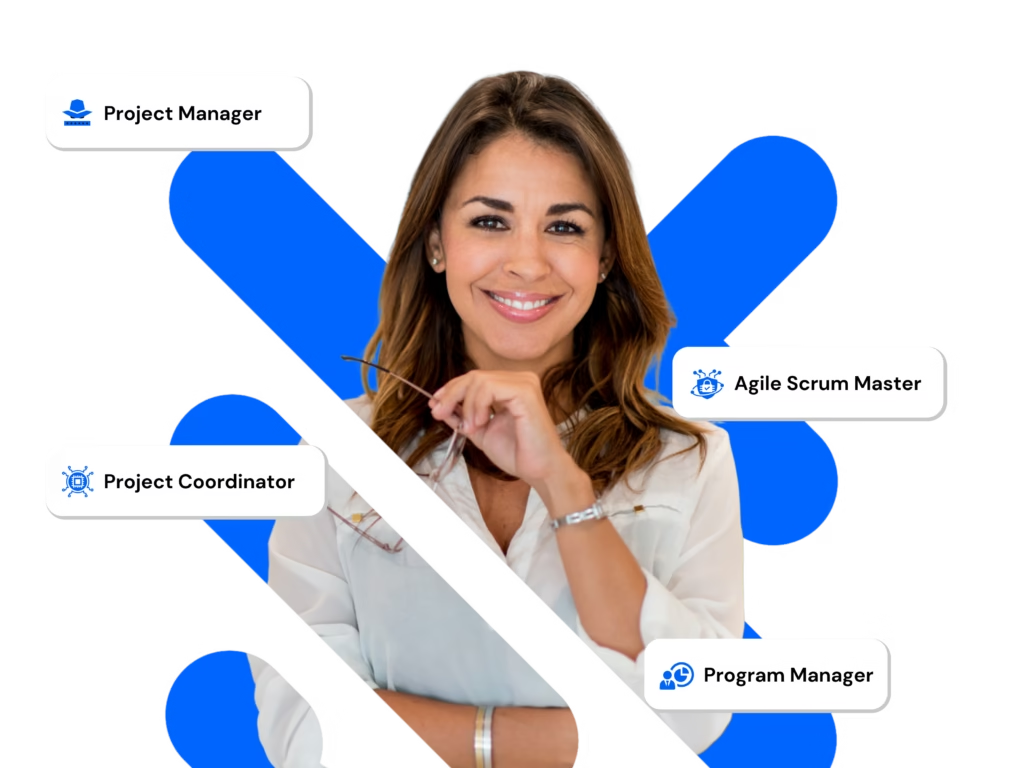One of the highest-regarded certifications for project managers worldwide is the Project Management Professional (PMP) certification, which is granted by the Project Management Institute (PMI). It indicates the capacity to use strategic thinking, risk management, and leadership abilities to effectively plan, carry out, oversee, and close projects. In addition to increasing professional credibility, PMP certification provides access to top positions and high pay in a variety of sectors. In order to ensure that candidates are adequately prepared for professional advancement, this article offers a thorough, step-by-step approach to earning PMP certification. It covers eligibility requirements, application procedures, study strategies, exam specifics, and maintaining your certification.
Table of Contents
Understanding PMP Certification & Its Global Value

The PMP certification is a globally recognized standard for excellence in project management. It demonstrates that experts are capable of successfully managing projects, guaranteeing on-time delivery, cost control, and high-quality results. The certification emphasizes strategy alignment, stakeholder engagement, and leadership in both classic and Agile project management methodologies. People with a PMP certification are in high demand in sectors such as IT, finance, healthcare, and construction. Obtaining the certification boosts professional reputation, shows dedication, and advances one’s job possibilities. Beyond knowledge validation, PMP is a crucial certificate for career advancement since it gives project managers the practical abilities they need to handle challenging situations, accomplish corporate objectives, and land leadership roles.
Benefits of PMP Certification beyond career growth

Although PMP certification increases earning potential and professional options, its advantages go beyond that. Credibility among stakeholders is increased, decision-making abilities are enhanced, and an organized approach to project management is developed by certified experts. They are more capable of managing risks, leading diverse teams, and seeing projects through to completion. Additionally, PMP improves soft skills like leadership, negotiating, and communication, empowering professionals to make a difference in organizations. These benefits make PMP an effective tool for developing oneself, advancing one’s career, and performing well under pressure in project management settings.
How to get your PMP Certification

Obtaining PMP certification is a systematic process that turns project management abilities into a widely accepted qualification. Every stage is essential, from determining your eligibility and completing your application to concentrating on your exam preparation and continuing professional growth. By following this roadmap, you may be sure that you are ready to successfully obtain and keep your PMP certification.
Meet the PMP Certification Requirements
Candidates must fulfill particular educational and experience requirements in order to achieve PMP certification. Project management experience must be at least 36 months for individuals with a four-year degree and 60 months for those with a secondary or associate degree. All applicants must also finish 35 hours of formal project management training, while CAPM holders are excluded from this requirement. For an application to be approved, projects, duties, and training hours must be properly documented. Fulfilling these requirements guarantees that applicants possess the know-how, abilities, and real-world project management experience needed. The PMP’s great reputation and widespread acceptance are upheld by these standards.
Submit your Application
Make an account on the Project Management Institute’s (PMI) website and finish your online application to start your PMP journey. Give specific information about yourself, your educational background, and a thorough account of your project experience, including positions, duties, and time spent on the project. Well-maintained documents lower the possibility of audit delays and enable PMI to swiftly confirm your eligibility. Once your application has been accepted, pay the exam cost and set up a time that works for you. Paying close attention to details at this point guarantees a seamless procedure, enabling you to confidently move into concentrated exam preparation.
Plan your Preparation
It takes a systematic and regular study strategy to get ready for the PMP exam. Make sure you understand the core ideas and real-world applications in the three domains of people, processes, and business environments. To strengthen learning, combine workshops, online courses, self-study materials, and practice tests. Critical thinking, time management, and decision-making abilities are enhanced by practicing scenario-based questions. Set aside enough time for studying over a few weeks or months, adhering to a set timetable. This systematic technique increases your odds of passing the PMP test on your first try by boosting your confidence, solidifying your memory of the material, and making sure you are ready to take it.
Take the Exam
There are 180 multiple-choice questions in the PMP exam, which must be finished in 230 minutes. The test can be taken at a licensed testing facility or online by candidates. With scenario-based questions that assess real-world project management abilities, it covers three domains: people, processes, and business environments. Accuracy and efficiency can be increased by examining sample questions, practicing under timed situations, and being familiar with the exam structure. Crucial tactics include maintaining composure, managing your time well, and concentrating on one question at a time. Candidates can successfully finish the exam and obtain the PMP certification if they prepare well and use a disciplined exam plan.
Maintain your Certification
The PMP certificate is valid for three years after it is earned. Professionals must complete 60 Professional Development Units (PDUs) throughout that time through mentoring, education, or project management community service in order to keep it. Participating in training courses, webinars, workshops, or project management volunteer work can earn PDUs. Maintaining the certification requires correct and timely PDU recording and submission. By keeping your knowledge and abilities up to date with industry trends, maintaining your PMP shows a continued dedication to professional development and builds credibility. Without having to retake the test, this continual learning strategy guarantees long-term success.
Common challenges while preparing for PMP Certification

The PMP exam’s extensive material, complex scenario-based questions, and strict deadlines can make preparation difficult. Candidates frequently find it difficult to manage their study plans with their personal and professional obligations. Common challenges include learning situational questions, understanding the Guide, and memorizing terminology. Using online resources or coaching programs, joining study groups, taking practice exams, and developing a systematic study plan are all examples of effective study techniques. Understanding these difficulties and preparing appropriately will help you focus better, feel less stressed, and have a higher chance of passing the PMP exam the first time.
Is the PMP worth it?
One of the most important certifications for developing a career in project management is the PMP (Project Management Professional) designation. It provides international recognition and signifies to proficiency in strategic decision-making, leadership, risk management, planning, and execution. Professionals with PMP certification frequently benefit from greater pay, better career prospects, and access to leadership positions in a variety of industries. In addition to verifying skills, the certification shows a commitment to career advancement and connects them to a global network of project management experts. Obtaining a PMP certification is a very beneficial investment for anyone looking to improve credibility, advance their career, and manage complicated projects successfully.
How SenseAcademy helps you get your PMP Certification?
The 35-hour project management training requirement for PMPs is satisfied by the structured training programs offered by SenseAcademy. Through engaging workshops, real-world case studies, and practice tests, knowledgeable teachers lead students through all PMP areas. Mentoring, study resources, and exam-focused techniques are provided to participants in order to increase their confidence and preparedness. To help applicants pass the PMP exam, SenseAcademy provides them with in-depth knowledge, systematic preparation, and practical skills. SenseAcademy guarantees that students are ready to get the PMP certification and progress in their careers in international project management positions by offering thorough support and direction.
Conclusion
A significant achievement for anyone hoping to succeed in project management is obtaining the PMP certification. It offers international recognition and improved job options while showcasing knowledge of leadership, risk management, planning, and execution. People improve their technical and managerial abilities by meeting eligibility standards, studying well for the test, and keeping their certification through professional growth. The PMP certification enhances credibility with stakeholders and employers, certifies real project management skills, and prepares workers to effectively manage complex projects. In the end, it provides access to leadership positions, career progression, and long-term success in a cutthroat, international workplace.
FAQ’s
What are PMP exam domains and its key focus areas?
Candidates undergo evaluation in three primary areas by the PMP exam: people, processes, and business environment. The People domain emphasizes dispute resolution, team management, and leadership abilities. Techniques for project delivery, planning, execution, and monitoring are highlighted in the Process domain. Organizational influence, regulatory compliance, and strategic alignment are all included within the Business Environment domain. Effective preparation is ensured by being aware of each domain’s weight and focusing on areas that will have the biggest influence. Professionals who have mastered these areas have the ability to manage real-world projects, show off their thorough understanding of project management, and pass the test with much greater probability.
What is the effect of PMP certification on salary?
Due to the certification’s recognition of project management skills, PMP-certified individuals typically earn greater wages than their colleagues who are not qualified. Employers find applicants with the qualification more valuable since it shows leadership, strategic thinking, and project management skills. Certified experts are frequently paid more in sectors including IT, banking, healthcare, and construction. A PMP certification can result in long-term professional advancement, managerial positions, promotions, and immediate pay benefits. By increasing earning potential and improving professional possibilities, attaining the PMP certification can often provide a significant return on investment.
Can a PMP assist with a job change?
Yes, professionals wishing to switch from other fields to project management may find that the PMP certification is helpful. It offers credibility in a new professional path by showcasing verified proficiency in project planning, execution, risk management, and leadership. Employability and career mobility are improved by the certification’s widespread recognition in sectors like engineering, IT, construction, finance, and healthcare. Career switchers can rapidly acquire credibility and confidence by using PMP, which provides practical knowledge, tools, and techniques. It is simpler to land leadership and project management positions in a new industry since employers view the certificate as evidence of professional ability.





